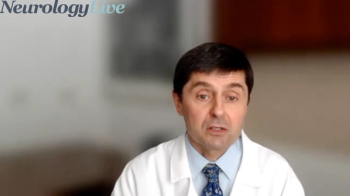
The chair of Cleveland Clinic’s Department of Physical Medicine provided background on the usage of exoskeletons in the clinical and at-home settings for rehabbing patients with multiple sclerosis. [WATCH TIME: 2 minutes]

The chair of Cleveland Clinic’s Department of Physical Medicine provided background on the usage of exoskeletons in the clinical and at-home settings for rehabbing patients with multiple sclerosis. [WATCH TIME: 2 minutes]

Previously used to treat conditions such as temporal lobe epilepsy and focal impaired awareness, the FDA approved a new oral suspension of zonisamide, an antiseizure medication on the market for over 2 decades.
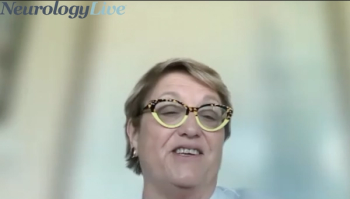
The director of the John P. Hussman Institute for Human Genomics at the University of Miami discussed non-APOE–related genetic correlations between different groups of individuals and Alzheimer disease. [WATCH TIME: 5 minutes]

Here's some of what is coming soon to NeurologyLive® this week.
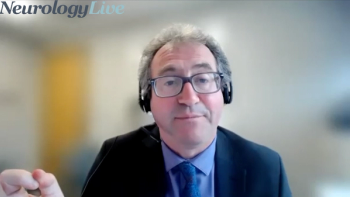
The director of the Mayo Clinic Center for Multiple Sclerosis and Autoimmune Neurology discussed the technological capabilities the center has, including the improved use of neural antibody testing. [WATCH TIME: 6 minutes]

Neuropathic pain and constipation coexisted in 43.5% of the survey participants, and approximately one-third of patients with both symptoms reported a possible link between the two.

Test your neurology knowledge with NeurologyLive®'s weekly quiz series, featuring questions on a variety of clinical and historical neurology topics. This week's topic is neuromuscular disorders.
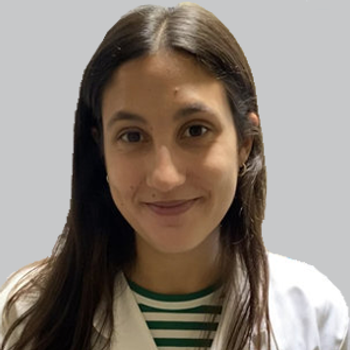
Between AQP4-IgG-positive and negative patients with NMOSD, there were no significant differences in cognitive performance, despite having similar demographic and clinical characteristics.
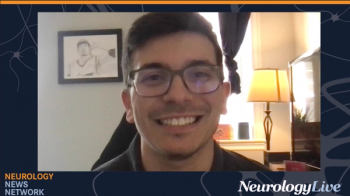
Neurology News Network for the week ending July 16, 2022. [WATCH TIME: 4 minutes]

Take 5 minutes to catch up on NeurologyLive®'s highlights from the week ending July 15, 2022.

Those randomly assigned to cognitive behavioral therapy reported significantly lower aggregate posttreatment mean HIT-6 scores compared with standard care, but the posttreatment effect for cognitive processing therapy vs treatment per usual was modest.
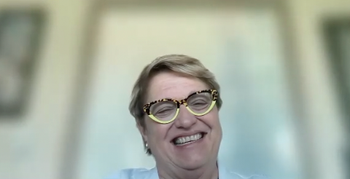
The director of the John P. Hussman Institute for Human Genomics at the University of Miami provided insight on the outlook on genetics and gene-based therapies for Alzheimer disease. [WATCH TIME: 3 minutes]

Mind Moments®, a podcast from NeurologyLive®, brings you an exclusive interview with Rajesh Pahwa, MD. [LISTEN TIME: 27 minutes]

The new phase 2b trial expands on successful phase 2a findings, in which treatment with SCI-110 resulted in a 21% reduction in tics across a cohort of adults with Tourette syndrome.
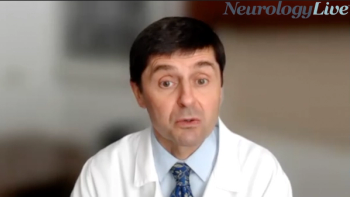
The chair of Cleveland Clinic’s Department of Physical Medicine discussed the different ways a newly approved robotic exoskeleton can improve gait in patients with multiple sclerosis. [WATCH TIME: 4 minutes]

The neurologist and movement disorders fellow at University Hospitals Cleveland Medical Center spoke about how his experience as a caregiver shapes his perspective as a doctor in care for those with movement disorders. [WATCH TIME: 3 minutes]

In a meta-analysis spanning 10 studies of 1300 patients with Alzheimer disease, global cognition, as measured by the Mini-Mental State Examination or ADAS-Cog, was improved using noradrenergic drugs.

The presence of concurrent psychogenic nonepileptic seizures increased the odds of hospitalization for first suicide by 152% compared with epilepsy alone.
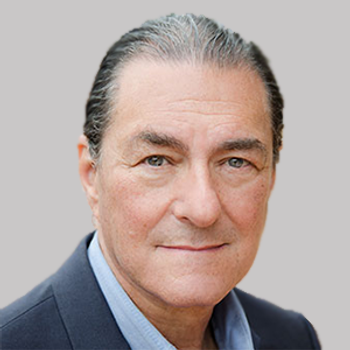
In comparison with controls, there were no significant differences in MRI volumes, amyloid-ß or tau accumulation, nor in most longitudinal measures among those with traumatic brain injury and/or PTSD.

In comparison to those with consistently low depressive symptoms, those with consistently high, fluctuating, and increasing depressive trajectories had 18% to 31% higher hazard of developing incident stroke.

The director of the Montefiore Headache Center provided an overview of the recent advances in migraine medications and how it has translated to improved care. [WATCH TIME: 2 minutes]

The chair of Cleveland Clinic’s Department of Physical Medicine provided commentary on the goals for the newly approved EksoNR robotic exoskeleton in rehabilitative efforts for patients with multiple sclerosis.

Over a 2-year period, apitegromab-treated patients demonstrated sizable and sustained improvements in Hammersmith Functional Motor Scale-Expanded and substantial increases in Revised Upper Limb Module scores.

The neurologist and movement disorders fellow at University Hospitals Cleveland Medical Center shared his experiences engaging with a diverse community of clinicians at the ATMRD Congress and in clinical practice. [WATCH TIME: 2 minutes]

The risk of developing Alzheimer disease and related dementias decreased gradually with increasing scores in a dose-response manner on a model geared toward identifying healthy lifestyle factors.
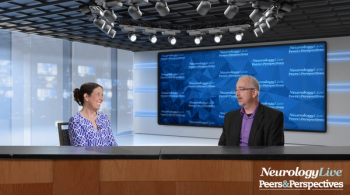
Scott Newsome, DO, and Ellen Mowry, MD, discuss the ongoing TREAT-MS trial and its goals, the importance of the findings for clinical practice in multiple sclerosis, and the ongoing discussion around induction vs escalation in MS treatment. [WATCH TIME: 24 minutes]
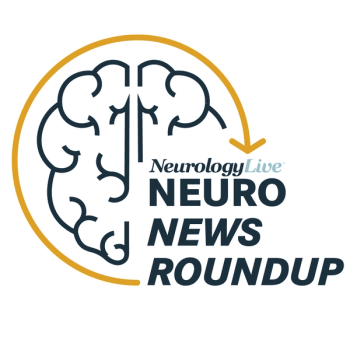
Get caught up on some of the latest news in epilepsy and seizure disorders, with data updates and expert insights, all in one place from the NeurologyLive® team.

Taldefgrobep alfa, a muscle-targeted experimental treatment potentially used in combination with other SMA therapies, will be evaluated in a cohort of 180 patients with SMA, regardless of ambulatory status or disease classification.

On a per-capita basis, a hospital serving a predominately Black, racially segregated community was 26% less likely to adopt stroke certification of any level than a hospital in a predominately non-Black, racially segregated community.

The director of the Montefiore Headache Center provided commentary on how analyses presented at AHS 2022 further support the benefits intranasal zavagepant bring to the migraine treatment landscape. [WATCH TIME: 5 minutes]